Over 200 new teachers graduate in South Sudan amidst national teacher shortage
South Sudan has long struggled with a shortage of teachers. Many South Sudanese with teaching degrees have found work in other organisations or in the private sector, because of better working conditions and pay. Still, the need for qualified teachers is huge, since a big part of the population is underage. That is why FCA proudly has supported new teachers in their studies all the way up to graduation.
In a defining milestone for teacher education in South Sudan, the Maridi National Teacher Training Institute (NTTI) conferred diplomas and certificates to 207 newly trained teachers (170 male, 37 female). This marks only the second graduating cohort since the Institute’s reopening in 2019 and signals an important leap forward in the country’s pursuit of quality education under the guiding principle: “Qualified teachers are the foundation for quality education.”
For South Sudan, a nation still emerging from decades of protracted conflict and systemic fragility, this event represents far more than a ceremonial passage. It is a tangible testament to education’s transformative role in rebuilding communities, restoring social cohesion, and shaping a generation equipped to lead the country toward stability and progress.
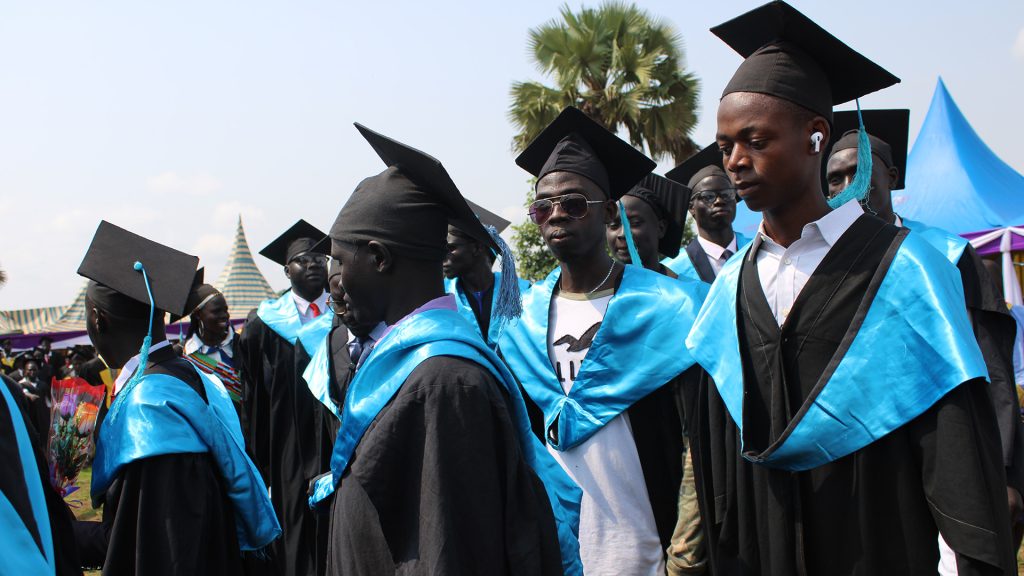
From Fourteen Graduates to Over Two Hundred
In 2023, the first post-reopening cohort numbered just 14 graduates, reflecting an institution struggling to regain footing after years of closure due to conflict and neglect. The sharp growth to over 200 graduates in 2025 underscores both the resilience of the Institute and the strategic investments made in teacher training.
For the first time, Maridi NTTI also celebrated the graduation of 94 diploma-level teachers, following the launch of a three-year diploma programme aimed at producing highly skilled, professionally qualified educators. The remaining 113 completed the two-year certificate in Primary Education. Both pathways blend rigorous theoretical training with practical experiences, enabling trainees to transition seamlessly into classroom environments.
Awarded and certified by the University of Juba, the programme emphasized child-centred pedagogy, literacy and numeracy instruction, professional education studies, and inclusive education methodologies. Modules in braille and sign language were integrated to equip teachers with the capacity to address diverse learner needs, including children with disabilities, reinforcing the commitment to leave no child behind.
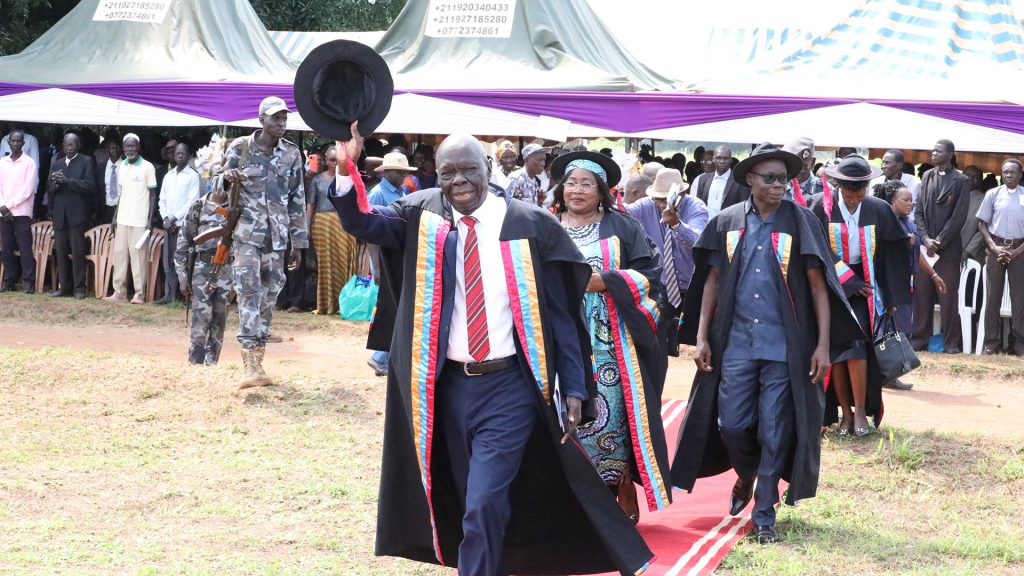
Education as a Lifeline
Speaking at the ceremony, Maridi NTTI Principal Mr. Jackson Sebit described teaching as “the father of all professions,” urging graduates to become ambassadors for the profession:
“You have chosen the best profession because it is for kind people. Be good ambassadors by mobilizing more people to join professional teacher training,” Sebit said.
Finn Church Aid (FCA) South Sudan Country Director, Mr. Seme Nelson, reinforced the life-saving nature of education in fragile contexts.
“Education is not a luxury; it is a life-saving intervention. When education is funded, children survive, heal, and thrive. When it is not, children suffer. No child should be denied education.”
Nelson further challenged graduates to embrace their roles as educators, role models, and community leaders.
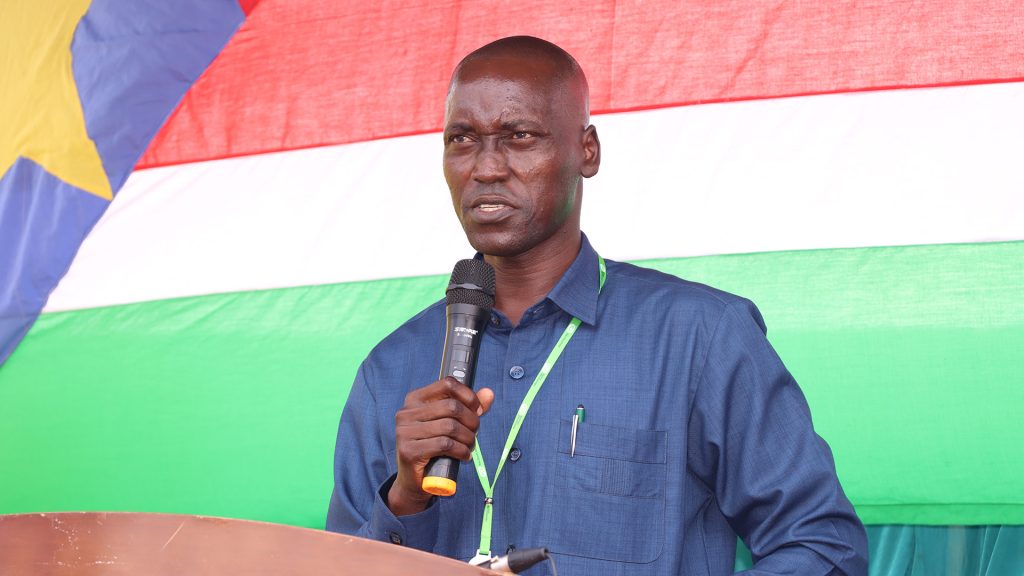
A Fragile System in Urgent Need of Teachers
The urgency underpinning this graduation cannot be overstated. According to the Annual Education Census (2023), South Sudan’s government-aided schools employ fewer than 49,750 teachers, 36 percent (17,720) of whom lack any formal teaching qualification. Nearly 70 percent of teachers are not on the government payroll, subsisting instead on small stipends from humanitarian organizations or volunteering without pay.
The crisis is compounded by huge teacher-to-pupil ratios, often exceeding 1:200 in overcrowded classrooms, and by the fact that 2.8 million children remain out of school. Alarmingly, the share of national budget allocated to education has declined from 8.5 percent in 2018 to just 2.7 percent in 2025, far below the global benchmark of 15–20 percent recommended by UNESCO.
Against this backdrop, the graduation of 207 trained teachers constitutes a critical injection of professional capacity into the education system, helping to address one of the most pressing bottlenecks to quality education delivery.
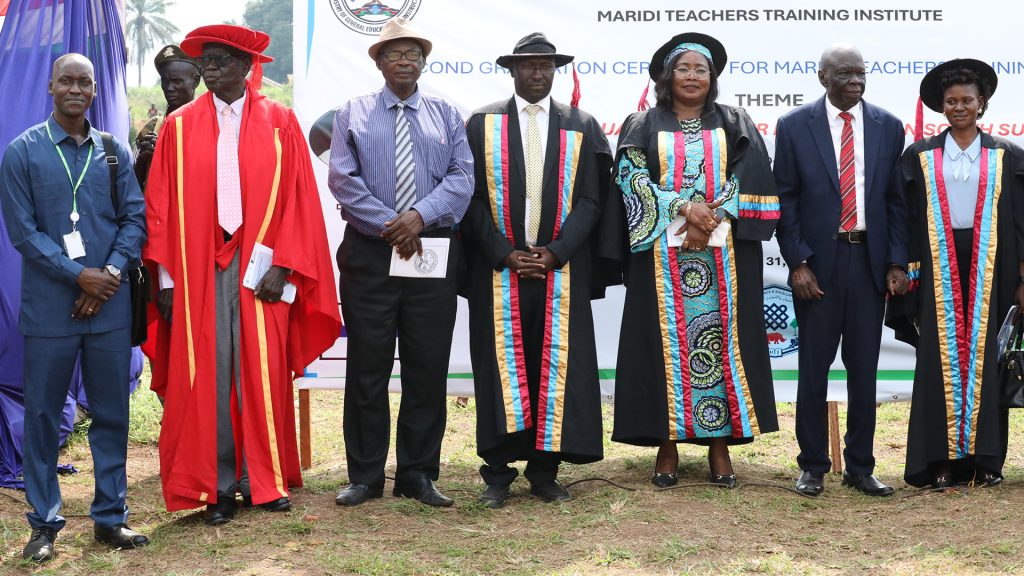
Reviving a Legacy Institution
Established in 1954, Maridi NTTI is the oldest teacher training institution in South Sudan. Once a cornerstone of the national education system, it endured years of closure due to conflict before reopening with support from FCA, in collaboration with the Ministry of General Education and Instruction and the University of Juba in 2017.
When FCA began its support in 2021 with funding from the Ministry of Foreign Affairs of Finland, the Institute’s first intake had only 15 trainees, all males. Since then, targeted interventions have transformed its capacity: provision of food and allowances, internet connectivity, digital learning infrastructure, incentives for trainers and staff, and advocacy to encourage female enrolment in the teaching profession where 37 females graduated in 2025 and 52 currently enrolled for 2025/2026 academic year.
Voices of Commitment
The graduation ceremony drew leaders from government, academia, and the development sector.
“You are not only teachers but also agents of community transformation. Through your dedication, we can build a literate society where every child, regardless of their background, can succeed,” Hon. Martin Tako Mayi, Deputy Minister of General Education and Instruction told graduates.
Professor Sibrino Forojalla, Dean of the School of Education at the University of Juba, underlined the macroeconomic implications of teacher education:
“Without education and teachers, no country will develop. The role of education must be prioritized in South Sudan’s national development agenda.”
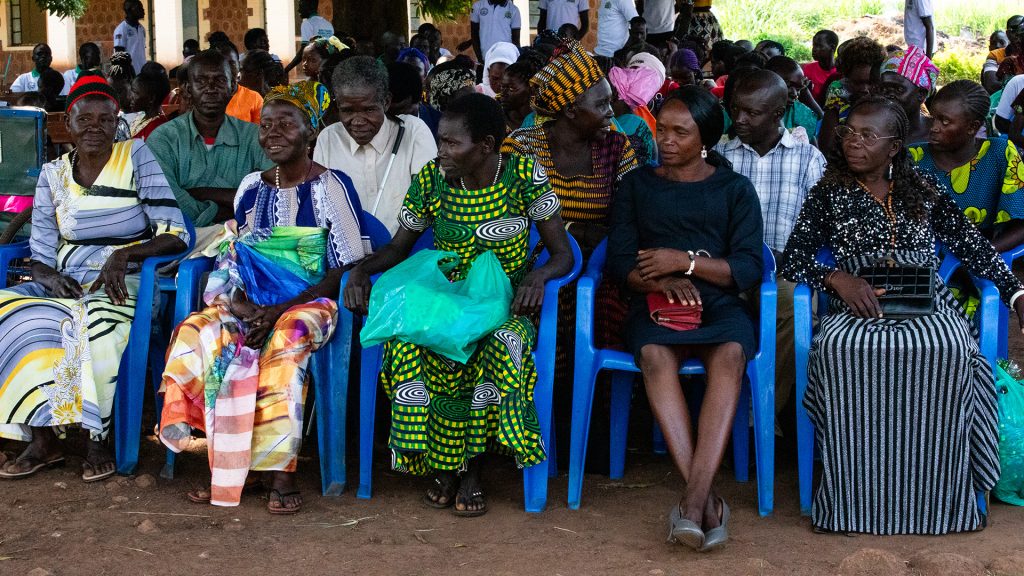
Graduating teachers is a step towards a stable future
The graduation of over 207 qualified teachers from Maridi NTTI is both a milestone and a call to action. In a country where the education system remains one of the most under-resourced in the world, this achievement highlights the power of targeted investment, strategic partnerships, and community resilience.
If South Sudan is to meet its Sustainable Development Goal (SDG) commitments particularly SDG 4 on inclusive and equitable quality education, expanding and sustaining such initiatives will be essential. The graduates of 2025 are not only entering classrooms; they are stepping into the front lines of national recovery, carrying the responsibility to educate, inspire, and lead the next generation.
Text and images: Kiden Viola / Finn Church Aid